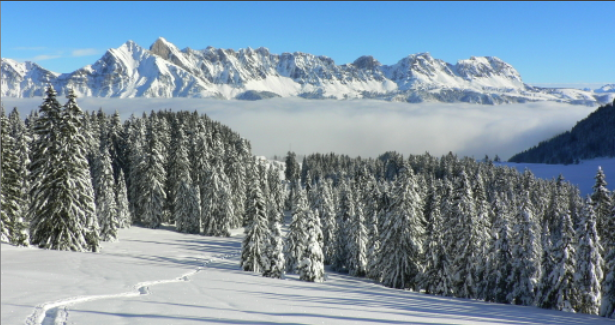Just a note to myself:
famous George Bernard Shaw quote:
The reasonable man adapts himself to the world; the unreasonable man persists in trying to adapt the world to himself. Therefore, all progress depends on the unreasonable man.
Just a note to myself:
famous George Bernard Shaw quote:
The reasonable man adapts himself to the world; the unreasonable man persists in trying to adapt the world to himself. Therefore, all progress depends on the unreasonable man.
Hah, I love that one. Stallman sends an email for each web page, he wants to look at:
From: Richard Stallman <rms-AT-gnu.org> Date: Sat, 15 Dec 2007 16:37:06 -0500 Cc: misc-AT-openbsd.org For personal reasons, I do not browse the web from my computer. (I also have not net connection much of the time.) To look at page I send mail to a demon which runs wget and mails the page back to me. It is very efficient use of my time, but it is slow in real time.
A cnet post quotes the NYSE:
The New York Stock Exchange is investing heavily in x86-based Linux systems and blade servers as it builds out the NYSE Hybrid Market trading system that it launched last year. Flexibility and lower cost are among the goals. But one of the things that NYSE Euronext CIO Steve Rubinow says he most wants from the new computing architecture is technology independence.
“What we want is to be able to take advantage of technology advances when they happen,” Rubinow said. “We’re trying to be as independent of any technologies as we can be.”
Source: Linux gives the NYSE lower costs and independence by Matt Asay – CNET Blogs
This year we are going to celeberate christmas with just our little 2.5 person family. And we are going away for skiing shortly afterwards. I still want a proper christmas tree. Christmas and Tree just go together in my twisted little brain. Is that crazy?
UPDATE: Yay, bought one. Plus a very cool tree stand too .
There is a new blog (“about page“), dedicated to fact-checking of claims about open source. Seems interesting, need to check from time to time.
 Almut’s friend Gwen visited us last week. As they wanted to see some real snow, we did a snowshoe-hike in Flumserberg. Our neighbor Rita joined as well.
Almut’s friend Gwen visited us last week. As they wanted to see some real snow, we did a snowshoe-hike in Flumserberg. Our neighbor Rita joined as well.
It had been raining in Zurich all week, but this one day was beautiful. Sun, blue sky (with fog underneath in the valley), and powdery snow. It was great fun.
Gwen and Dave returned to Manchester on Sunday. Hope they’ll get some snow up there too.
Nokia managed to get the ogg vorbis audio format as a recommended standard out of the upcoming HTML5 draft removed. It seems that Apple, Microsoft and Nokia lobbied quite hard to get it removed as this blog entry shows.
prolinux.de reports (German) that Nokia only considers H.264 for Video and AAC for audio formats, formats which involve license fees. Oddly enogh Nokia seems to argue that the free video format Ogg Theora is proprietary and does not want to support it without giving reasons for that seemingly non-sensical argumentation.
The above-mentioned LWN article (Subscription only next 2 weeks) has a very balanced view on things. It’s a recommended read.
heise reports (in German) that the Netherlands require public agencies to deploy open source software. From December 2008 on, all public institutions that want to use proprietary operating systems and office solutions will have to justify specifically why they need it. Great.
They also note (German) that New Zealand has published the Information Systems Strategic Plan 2006-2010 (ISSP) which promotes the usage of open standards and software. They counter some of the popular arguments against the usage of open source: It’s not true anymore that there is no commercial support for open source software. Many open source programs also don’t require professional know-how anymore in order to be able to use it. And OSS in general is not just idelogical and part of an anti-capitalstic movement.
The Open Knowledge Forum Network has announced its second annual Open Knowledge conference, at the London School of Economics on March 15, 2008. The OKFN is a wonderful institution, bringing together people from many disciplines to work out the politics, ethics, and the nitty gritty practicalities of knowledge sharing and collaboration.
‘Open Knowledge’ is material that others are free to access, reuse or re-distribute and may be anything from sonnets to statistics, genes to geodata. In recent years we’ve seen the growth of successful open knowledge projects – from peer reviewed journals to community edited encyclopaedias – but what impact can open licensing have in education, research and commerce? Is sharing the key to scaling? What kinds of business models are available to open knowledge distributors and how is open knowledge applied in different institutional and professional contexts?
There now exists a vast amount of open content and data but what kinds of tools are available to analyse and represent this wealth of material? How can we sort, search, store it to maximise its visibility and reusability?
We’ve also witnessed the rise of web-based services — from social networking sites to online spreadsheet packages. While we have definitions for open software and open knowledge, what is an open service and what kinds of new services can be built using open knowledge?
Found on boingboing.net